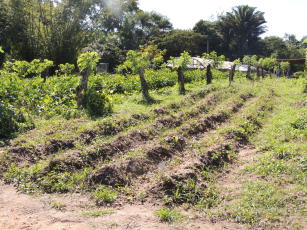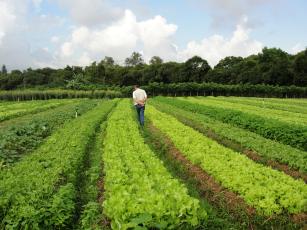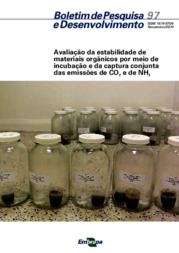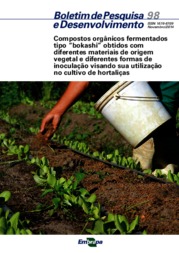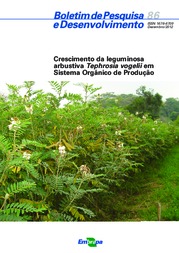Contribution from soil and biomass management in organic production systems to strengthen Brazil’s green economy
Contribution from soil and biomass management in organic production systems to strengthen Brazil’s green economy
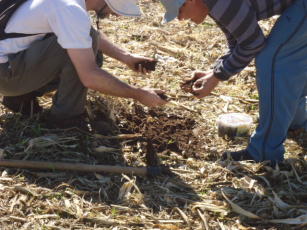
Photo: PARRON, LUCILIA MARIA
The overall objective of this project was to strengthen Brazil’s green economy by harmonizing economic development and environmental conservation through sustainable agriculture that does not harm the environment, using soil and plant biomass management in organic production systems as a starting point. Unlike many agricultural production systems, organic agriculture offers a range of practices and techniques that potentially contribute to increase sustainability, including soil and plant biomass management.
Soil conservation and improvement are essential to achieve production standards for the competitiveness of organic systems, which are based on biological processes, organic matter input, and biomass management in agricultural units. Within this context, plant biomass management plays a crucial role, involving practices such as green manure, cover crops, crop rotation and intercropping.
The project also aimed to assess conservation practices and techniques that are capable of improving soil fertility in organic systems, in addition to analyzing their impact on food quality and on insect-pest and phytopathogen populations.
Keywords: Agricultural inputs, phytosanitary measures, food quality, soil conservation management, organic agriculture
Soil conservation and improvement are essential to achieve production standards for the competitiveness of organic systems, which are based on biological processes, organic matter input, and biomass management in agricultural units. Within this context, plant biomass management plays a crucial role, involving practices such as green manure, cover crops, crop rotation and intercropping.
The project also aimed to assess conservation practices and techniques that are capable of improving soil fertility in organic systems, in addition to analyzing their impact on food quality and on insect-pest and phytopathogen populations.
Keywords: Agricultural inputs, phytosanitary measures, food quality, soil conservation management, organic agriculture
Ecosystem: Amazonic, Extreme South, Atlantic Forest, Pantanal, Caatinga Region and Mixed forests, Cerrados Region
Status: Completed Start date: Sat Sep 01 00:00:00 GMT-03:00 2012 Conclusion date: Thu Jun 30 00:00:00 GMT-03:00 2016
Head Unit: Embrapa Agrobiology
Project leader: Jose Antonio Azevedo Espindola
Contact: jose.espindola@embrapa.br

